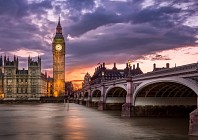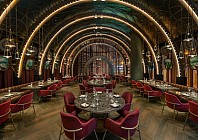 Tell us about your role at Banyan Tree Al Wadi?
Tell us about your role at Banyan Tree Al Wadi?
I manage the Falconry Centre on behalf of Royal Shaheen Events (who are contracted to manage the Falconry Centre) and am responsible for the training and day-to-day care of all the birds. I conduct daily falconry displays, where a number of birds are flown for guests and we are the first establishment in the Middle East to offer an ‘Introductory Course in Falconry’.
What kinds of birds do you keep?
Our star bird is Kiran, a magnificent female Golden Eagle. She flies regularly in the displays to the awe and delight of young and old alike. We have a number of falcons, mainly traditional hunting birds like Saker and Peregrine falcons, but we also have two hybrids; a pure white Gyr falcon and a very cute and cheeky little kestrel named Pipsqueek the Terminator. We recently imported a breeding pair of Barn Owls and a pair of Harris’s Hawks from the UK. Guests can also meet Google and Yahoo, a brother and sister pair of indigenous Desert Eagle Owls.
Why are falcons an important part of the local culture?
There is an unbroken tradition here in Arabia of hunting with falcons dating back for roughly two thousand years. During the winter months the falcon was a very important hunting tool for the Bedouin tribes. The discovery of gunpowder five hundred years ago made falconry effectively obsolete as a serious hunting method in Europe, but falcons remained very important hunting partners here until the discovery of oil a few decades ago. That explains why the sport is still so highly revered in Arabia today.
Conservation is obviously important at Banyan Tree al Wadi - what is your mission?
We are constantly striving to educate visitors about the sustainable utilisation of both the hunting birds and their quarry. I am convinced that falconry is an important part of not only Arab culture, but also human cultural heritage. We therefore try to promote the responsible and sustainable practice of the sport. Some of our conservation goals are, for example, breeding indigenous owl species with the ultimate objective of releasing and naturalising the offspring onto the Banyan Tree reserve.
What is the best part of your job?
I enjoy interacting with people and love to see the amazement on their faces when a lethal hunting falcon gently lands on their glove fist for a small reward. But the real satisfaction comes from working with the birds. I am the luckiest man in the world to get paid doing what I would happily do for free.
Why is your job unlike any other in the world?
I don’t believe my job is entirely unique, but I do try to do things in a new and fresh way. Having said that, I don’t think there are many people in the world who have an ongoing love affair with a Golden Eagle who has enough power in her feet to crush a man’s hand.










